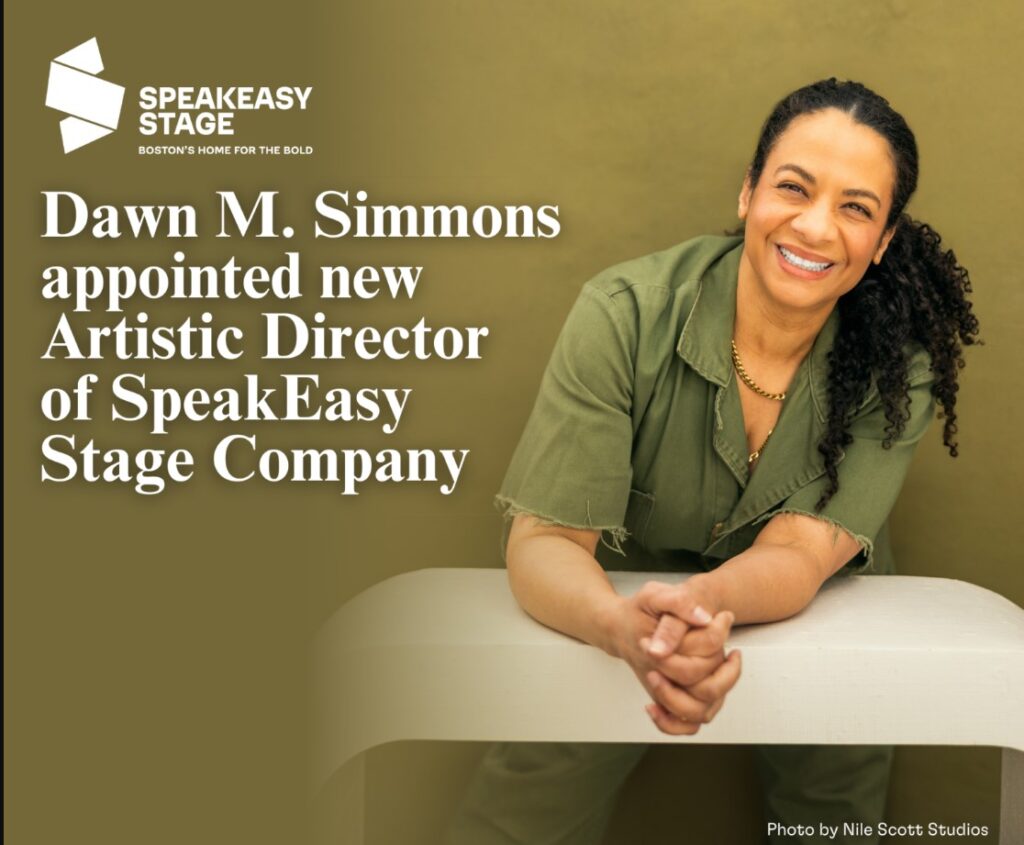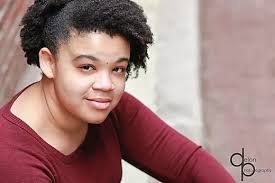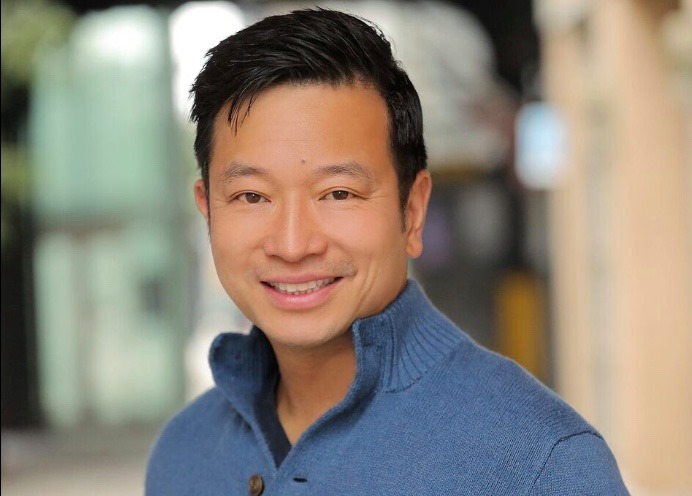
ImprovBoston’s mainstage. Image found via Google.
ImprovBoston website
IB on Twitter
IB on Facebook
Interview by Kitty Drexel
CAMBRIDGE, MA — On December 1, ImprovBoston officially announced the closure of its location on 40 Prospect Street in Cambridge. A letter to the greater improv community explaining the closure is on the IB website above an update from its Diversity, Equity and Inclusion Task Force and a Black Lives Matter statement.
I had the great privilege of working at ImprovBoston for a few years during the Great Recession. It was then that I met Managing Director Josh Garneau. He was a tech in the IB lighting booth. I was working in the box office when it was one clunky desktop connected to a printer that usually worked most of the time. Except when it didn’t.
Garneau and I reconnected ten years at a StageSource event. When I heard that the 40 Prospect Street location had closed, its stage torn down, I reached out to Garneau to learn more about what losing the theatre will mean for the ImprovBoston community.
Please note: this interview is edited for grammar and clarity.
—————
NETG: We know each other because we both worked at ImprovBoston. I worked in the Box Office and you were a tech in the booth performances. Could you tell me about your evolution as a tech to MD? What was it about the IB community that allowed you to rise through the ranks?
JG: This is a fun question, and it brings up many good memories!
As the Lead Tech at ImprovBoston I was involved with most of the endeavors at the theater. From working with our regular performers, admin, and night time staff, to interacting with our special guests and festival performers, I had to meet everyone and work with everyone. I also got involved with a lot of the behind the scenes operations. In the 10 years that I was there before I stepped in as Managing Director, if something happened in the building there was a good chance that I was involved.
Through those ten years I built up and maintained a lot of positive relationships and good will. I earned trust and respect from the vast majority of the people I worked with.
At the same time my various professional day jobs involved learning about how businesses run. As a corporate trainer I had to learn what makes a business successful, and understand it thoroughly enough that I was able to pass that along to my trainees.
When the time came to step in at ImprovBoston I was able to combine the two paths – the knowledge of the theater and my positive relationships, and my corporate knowledge – so I could step in and really take over and set to work immediately.
By being a part of the ImprovBoston community, I was able to build and develop those relationships and the intimate knowledge of the theater that has been an invaluable part of my life as the Managing Director. I know ImprovBoston inside and out, and while I may not know every single human involved, I know our community and they know me. That personal connection has made all the difference.
NETG: Closing the 40 Prospect space feels like a major blow to the ImprovBoston community. Could you talk about the decision to close the space? How was the decision made?
JG: Yes indeed. Losing the space is a huge blow to both the community and to the business as a whole. The space at 40 Prospect holds so many memories and has such an outsized impact on the lives of the community members who used it as a gathering place, a performance space, a social epicenter, and a place where artistic ideas could be brought to life.

The exterior of ImprovBoston. Image found via Google.
The decision to close the space was really, in many ways, the easiest choice of all. By the time we made the call it wasn’t as much a choice as it was a necessity. We were out of money to keep paying rent, and we were out of options. At the end, it was either let go of the space, or shut down the organization all together. All of the decisions leading up to that point are where the challenges were.
When the pandemic first hit we chose to go dark before the State announcement in order to make sure we kept our community and audiences safe. Within a few weeks we’d pivoted and spun up online shows and classes. They were novel and fun ways to provide entertainment, stay connected, and make sure that our instructors could continue to earn some income. It was a new world we were living in, and we wanted to provide a space for people to experience joy. Simultaneously we also began aggressively fundraising.
For most of ImprovBoston’s history, we’ve been operationally funded. Our shows and classes paid for everything, and fundraising was never the priority. Overnight that changed, and we found ourselves shifting to a model where fundraising was the priority. The online classes and shows couldn’t generate nearly enough income to pay the bills.
Based on the numbers, we made another big choice to furlough the staff and stop treading water with online shows and classes. By furloughing we could conserve funds, and spend them on rent and other essentials. The goal was to keep fundraising (which we did!), and hope for more federal and local aid as we rode out the pandemic.
Unfortunately, the aid never came. The Feds stalled out, and the state and local aid wasn’t enough. The grants and donations we have received have been wonderful and have helped us stay afloat this far.
NETG: Did you speak with the City of Cambridge and your landlord to try to stay?
JG: We did attempt to work with the landlord, but they only offered a partial deferment on the rent which added to our debt while still being too much to support.
The City of Cambridge, and in particular Alanna Mallon, are very supportive and we’ve heard over and over that they want us to succeed. At the end of the day, though, the rent and our other non-negotiables have just been too much to support, so we had to make the hard choice based on necessity.
NETG: Could you speak to the resiliency of the community during the pandemic?
JG: The community has been amazing. Outright amazing. I’ve loved seeing people’s willingness to help the theater, and their ability to spin up art and creativity in the most challenging of times.
At the start of all of this, everyone had to take a breath and look around and define the new world we live in. Almost immediately the wonderful, creative, and talented people of our community started spinning up shows. Faster than any of the scripted companies could move, our community had dozens of shows up on running.
Even after the theater went dark, many people have moved over to other platforms and groups to keep on producing the art, and it’s been wonderful to see. At the same time, people have jumped on everything ImprovBoston needs, from fundraising to helping clean out our space, and it’s pure ImprovBoston magic. We may no longer have the space, but the people at ImprovBoston are what makes it special, and they’ve proven that over the last 9 months by continuing to be creative, supportive, and caring.
NETG: Where can we see more ImprovBoston content online? Are online classes still available?
JG: Right now we are entirely dark. No shows, no classes, and no content. That will change in the future, but for now we are still, unfortunately, dark. The website will be the best place to look for announcements, and as changes come we will also post on social media.
NETG: What is next for ImprovBoston? What does the future look like?
JG: This is the (literal) $1,000,000 question. This is all theoretical, of course, but for the short term we are continuing to look at grants so that we can keep paying rent at our office space on Mass Ave, and spin up online classes.
As it becomes safe to have even small numbers of people in the room we will begin to bring people in to do shows on a real stage, together, but stream those shows out rather than performing in front of a live audience. We have received so many incredible offers of support form other theaters and venues around the metro area. There will probably be a time when we move to doing traveling shows – the traditional path of troupes without home theaters.
Long term, although we hope it is within the next year, the goal is to have a capital campaign and acquire a new space. This will be a huge endeavor, and it will be made even harder because of the effects of the pandemic and our lack of a stage to play on. I believe, however, in the strength of the ImprovBoston community and I believe that, if any place can do this, it’s ImprovBoston.
To state the obvious, losing a performance space is not a good thing for a theater. We’ve lost our platform, our primary revenue earner, and our easiest way of staying relevant and in the forefront.
However, there’s a lot of hope to be found. If we have to start over we have an enormous opportunity to do it right. To make an inclusive and equitable space for everyone – performers, staff, students, and audience – where we can really showcase the power of improv and ImprovBoston to change lives positively and bring joy to the lives of our constituents. I am ridiculously excited to see that place manifest.
NETG: How can fans and friends support ImprovBoston?
JG: For right now, the best way to support is to keep thinking of us, and pay attention to our website for updates. When it’s time for us to release online classes or shows, sign up! If there is some extra cash lying around www.improvboston.com/donate is the place to send it. There is so much hope for our future, but it’s a lot easier to get there if we have money to get us through this rough time.
NETG: ImprovBoston is famously hands-on. Construction projects bring folks from many troupes together to build. Do you think there be a community-wide building project to construct the new space?
JG: As you say, we are a hands-on place. Community involvement is essential to us, and the process of building a new space will be no different. When you physically build a new theater home, you are invested. We will be welcoming of that investment. I don’t know what that will look like as of now – but I do know that in some way shape or form our community will be involved. There will be a chance for a new generation of people to roll up their sleeves and get involved!
Thank you to Josh Garneau for sharing his time and experiences with us! We at the New England Theatre Geek wish the best for the ImprovBoston community. We look forward to a time when we can share live comedy with you again.
If can donate to ImprovBoston, please go to https://www.improvboston.com/donate/.


 Presented by
Presented by 


 Actor Michael Tow:
Actor Michael Tow: